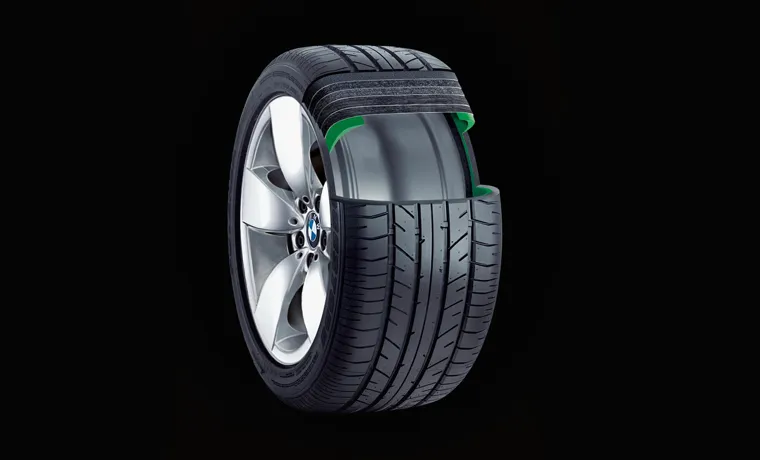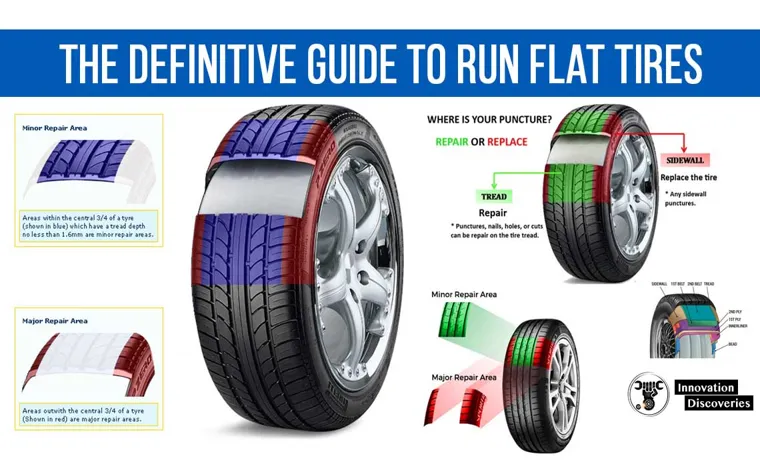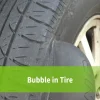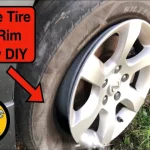Are you in the market for run flat tires? Perhaps you’ve heard of the benefits of these specialized tire types and are considering investing in a set for your vehicle. However, the question of price may be looming in your mind – just how much do run flat tires cost? The answer to this question is not straightforward, as the cost of run flat tires can vary depending on a few factors. For one, the brand and quality of the tire will affect the price – premium brands may come with a higher price tag than more budget-friendly options.
Additionally, the size of your tires and the type of vehicle you have can also affect the cost. Generally, you can expect to pay anywhere from $150 to $500 per run flat tire, with some specialized or luxury models costing even more. While this may seem like a hefty price to pay, it’s worth considering the benefits that run flat tires offer.
With their reinforced sidewalls, run flat tires are able to support the weight of a vehicle even when the tire has lost air pressure, allowing you to continue driving safely to the nearest service station or repair shop. Ultimately, the cost of run flat tires may be higher than traditional tire options, but the added peace of mind and safety benefits may make them a worthwhile investment for some drivers. As with any tire purchase, it’s important to do your research and compare options to find the best fit for your vehicle and budget.
Table of Contents
What is a Run Flat Tire?
If you’re wondering how much a run flat tire will cost you, the answer depends on a few factors. Run flat tires are designed to continue driving at a reduced speed for a limited distance even when there is no air in them. These tires typically have reinforced sidewalls that can support the weight of the vehicle without air pressure.
The cost of a run flat tire can vary based on the brand, size, and the type of vehicle you own. On average, a run flat tire may cost about 25% more than a traditional tire. However, this cost may be offset by the fact that you don’t need to carry a spare tire and the costs associated with changing and maintaining them.
Additionally, run flat tires can offer added safety benefits, allowing you to drive to a safe location to change the tire in the event of a puncture, rather than being stranded on the side of the road. Overall, the cost of a run flat tire may be higher, but the potential benefits and safety considerations may make them worth the investment.
Description of Run Flat Tires
A run-flat tire is a type of tire that is designed to allow a vehicle to continue driving even after a puncture or loss of air pressure. These tires use a stiffer sidewall construction and a different type of reinforced rubber, which allows them to support the weight of a vehicle even when there is no air in the tire. This means that if you suffer a flat tire while driving, you can continue driving at a reduced speed for up to 50 miles or so, which is usually enough to get you to a service station or other safe location.
Run-flat tires are often used on luxury vehicles or sports cars but can be found on other types of vehicles as well. They are generally more expensive than traditional tires but can offer added peace of mind if you are worried about getting stranded with a flat tire.

Factors Affecting the Cost of Run Flat Tires
If you’re in the market for new tires, you might be wondering how much run flat tires cost. The answer, as with many things, is that it depends on a variety of factors. One of the biggest factors is the brand of tires you choose.
Some brands may be more expensive than others simply because of the reputation they have built up over time. Another factor that can affect the cost of run flat tires is the size of your wheels. Generally, the larger your wheels are, the more expensive your tires will be.
Additionally, the type of vehicle you have can impact the price of your tires. If you have a high-performance car, you may need specialized tires that can handle the additional stress placed on them. Finally, the tread pattern of the tires can also play a role in the cost.
Tires with a more complex tread pattern may cost more than those with a simpler design. So, while the cost of run flat tires can vary widely, it’s important to understand how these different factors can impact the final price.
Brand and Quality
When it comes to purchasing run flat tires, the cost can vary depending on various factors like brand and quality. Premium brands that have a reputation for durability and reliability usually come with a higher price tag, whereas mid-range or budget-friendly brands may offer a lower cost but may not provide the same level of performance and longevity. The quality of the materials used in the manufacturing process of run flat tires also plays a significant role in determining their cost.
High-quality rubber compounds with advanced technology can provide superior performance and durability, but they will naturally cost more. On the other hand, cheaper materials may lead to lower-quality tires that wear out faster and require more frequent replacement. Therefore, when considering run flat tires, it is important to strike a balance between cost and quality to ensure that the tires provide the desired level of performance and safety without breaking the bank.
Size and Vehicle Compatibility
When it comes to the cost of run flat tires, there are a number of factors that can affect the price. One of the most significant is the size of the tire. Generally speaking, larger tires will be more expensive than smaller ones, as they require more material to manufacture.
Additionally, the type of vehicle that the tire is intended for can also play a role in determining its cost. Vehicles with larger and more powerful engines often require larger and more durable tires to handle the extra weight and strain. As a result, run flat tires for trucks and SUVs can be more expensive than those for smaller passenger cars.
Finally, brand and quality can also impact the price of run flat tires, with premium brands often charging a premium price for their products. Ultimately, the cost of run flat tires will depend on a variety of different factors, and it can be helpful to compare prices and features across different brands and models before making a purchase.
Retailer or Dealer
When it comes to purchasing run flat tires, retailers and dealers can significantly impact the cost of the tires. Factors such as location, brand, and competition can all affect the final price. For example, retailers located in a highly populated area or near a popular tourist destination may charge more due to increased demand.
Additionally, well-known tire brands may come with a higher price tag, while lesser-known brands may be more affordable. Competition can also play a role as retailers may offer discounts or promotions to edge out their competitors. It’s important to do your research and compare prices before making a purchase to ensure you’re getting a fair deal.
By considering these factors, you can find run flat tires that fit your budget and provide the performance and safety features you need.
Additional Services
Run Flat Tires If you’re thinking about investing in run flat tires, you may be wondering about the factors impacting their cost. One of the main things to consider is the brand of tire you choose. Some brands may be priced higher due to their reputation for quality and durability.
Additionally, the size and type of tire you need can also affect the cost. Larger tires designed to fit SUVs or trucks tend to be more expensive than smaller ones for cars. The level of performance you require from your run flat tires is another consideration.
If you need high-performance tires capable of achieving faster speeds, you may need to pay more. Lastly, the conditions you drive in can influence the cost of run flat tires. If you frequently drive on rough or uneven terrain, you may need more expensive tires to withstand the wear and tear.
Ultimately, it’s important to balance your needs with your budget and choose the best run flat tires that meet both requirements.
Average Cost of Run Flat Tires
If you’re wondering how much run flat tires cost, the answer can vary depending on the type of vehicle you have and the brand of tire you decide to go with. Run flat tires are designed to keep you moving in the event of a puncture, which can be a real lifesaver if you’re traveling on a busy highway or in a remote area. On average, run flat tires can cost anywhere from $150 to $350 dollars per tire, with some high-end models costing up to $500 or more.
While they may cost a bit more than traditional tires, the added peace of mind and safety benefits make the investment worthwhile for many drivers. Plus, you won’t have to worry about getting stranded on the side of the road with a flat tire! So if you’re in the market for new tires, be sure to consider run flat tires for added safety and convenience on the road.
Comparison of Popular Brands and Models
When it comes to run-flat tires, the cost can vary widely depending on the brand and model you choose. On average, run-flat tires cost about 50% more than traditional tires. For example, you can expect to pay around $200 to $300 for a single run-flat tire, whereas a traditional tire may cost around $100 to $200.
Brands like Bridgestone, Goodyear, and Michelin are popular choices for run-flat tires, but you can also find options from other manufacturers like Continental and Pirelli. It’s important to note that while run-flat tires can be more expensive upfront, they can also save you money in the long run since you won’t have to purchase a spare tire or pay for a tow truck if you experience a flat. Additionally, some car manufacturers require run-flat tires to be used on their vehicles, so make sure to check your owner’s manual before making your tire purchase.
Cost Range Based on Size and Vehicle Compatibility
If you’re wondering about the average cost of run flat tires, it’s important to consider the size of your vehicle and its compatibility with these tires. Run flat tires are designed to allow you to continue driving even if you get a flat tire, but they can cost more than traditional tires. On average, you can expect to pay between $150 and $400 per tire for run flat tires, depending on the size and brand you choose.
This cost may be higher if you have a larger vehicle, such as an SUV or truck, as these tires are typically larger and more expensive. It’s important to note that while run flat tires can be more expensive, they can also save you the hassle and danger of changing a tire on the side of the road. Additionally, they can give you added peace of mind knowing that you won’t be stranded in the event of a flat tire.
So, while the cost may be higher, the benefits may be worth it for some drivers.
Conclusion
So, how much does a run flat tire cost? Well, it’s like asking how much a piece of string costs – it depends! It depends on the brand, the type of vehicle, the size of the tire, and a whole host of other factors. One thing we do know, though, is that choosing a run flat tire can potentially save you money in the long run by reducing the need for spare tires, towing fees, and lost time on the road. So, while the cost of a run flat tire may seem like a lot up front, it could end up saving you a pretty penny in the end.
Plus, let’s be real – can you really put a price on the peace of mind that comes with knowing you won’t be stranded on the side of the road with a flat tire?”
FAQs
What is a run flat tire and how does it work?
A run flat tire is a type of tire that can operate even after losing air pressure. It has reinforced sidewalls that allow the tire to support the vehicle’s weight. This allows the driver to continue driving to a safe location without having to change the tire immediately.
Are run flat tires more expensive than regular tires?
Yes, run flat tires are generally more expensive than regular tires due to their unique construction and added safety features.
Can run flat tires be repaired?
In some cases, run flat tires can be repaired, but it is recommended to replace the tire if it has been driven on while flat. Additionally, not all tire shops have the equipment necessary to repair run flat tires.
Do all cars come with run flat tires?
No, not all cars come with run flat tires. Some car manufacturers offer run flat tires as an option, while others do not.
How long do run flat tires last?
Run flat tires can last just as long as regular tires, but they may wear out faster due to the added reinforcement in the sidewalls.
Can run flat tires be used in winter conditions?
Yes, run flat tires can be used in winter conditions, but they may not perform as well as dedicated winter tires. It’s important to check the manufacturer’s recommendations before using run flat tires in winter weather.
Are run flat tires compatible with all wheel types?
No, run flat tires are not compatible with all wheel types. It’s important to make sure the wheels on your vehicle are compatible with run flat tires before purchasing them.



